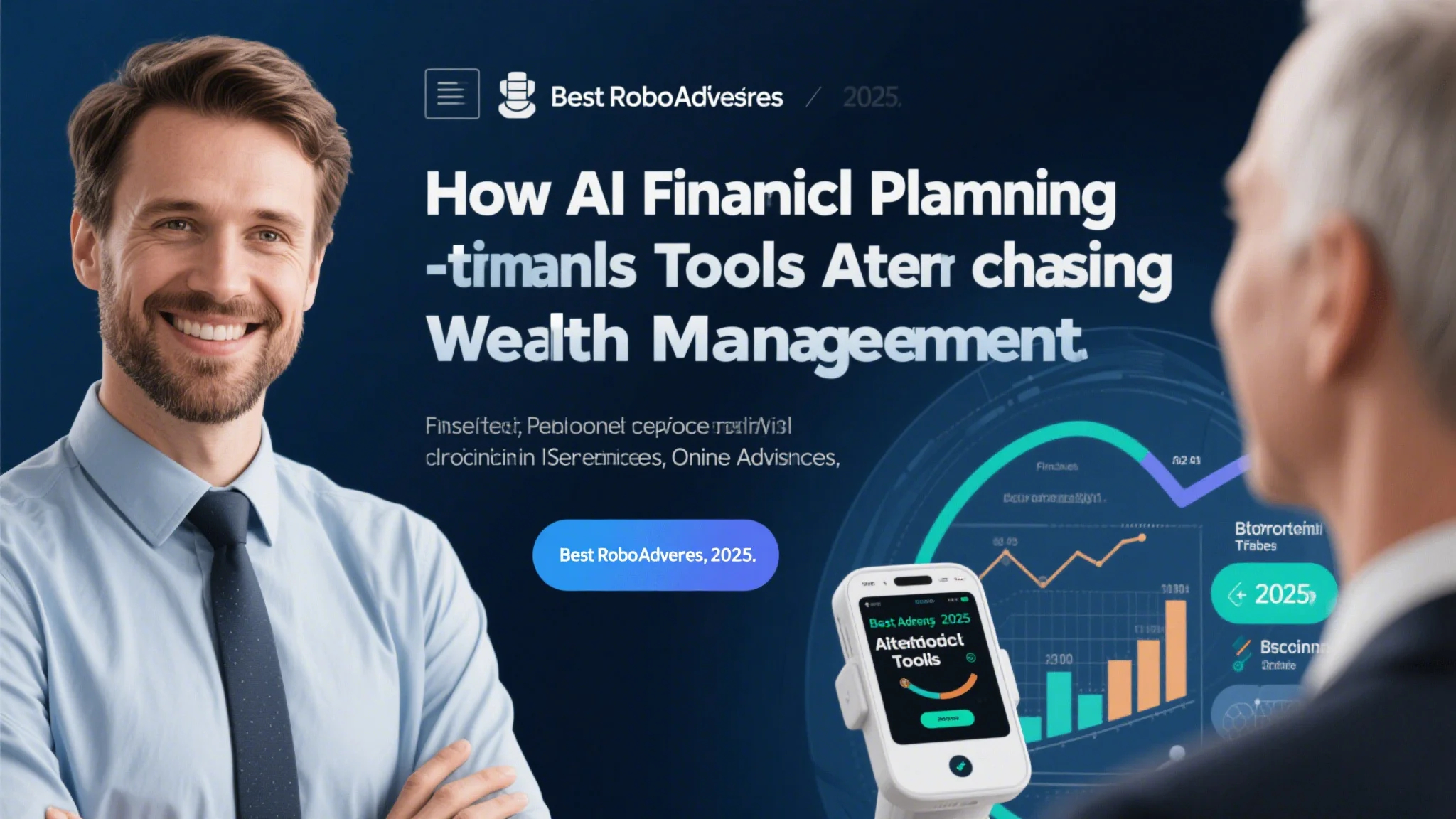
How AI Financial Planning Tools Are Changing Wealth Management
How AI Financial Planning Tools Are Revolutionizing Wealth Management
The financial landscape is undergoing a seismic shift as AI financial planning tools become increasingly sophisticated. These advanced systems are transforming how individuals and institutions approach wealth management, offering personalized recommendations that were once only available through high-end financial advisors. By leveraging machine learning algorithms and vast datasets, these tools can analyze market trends, assess risk tolerance, and create optimized investment strategies tailored to each user’s unique financial situation.
Traditional wealth management services often came with high fees and minimum investment requirements that put them out of reach for many consumers. The emergence of best robo-advisors 2025 has democratized access to professional-grade financial planning, allowing investors with modest portfolios to benefit from the same level of sophisticated analysis previously reserved for high-net-worth individuals. These automated platforms combine the efficiency of algorithms with human oversight to deliver comprehensive financial solutions at a fraction of the cost.
The Convergence of Technology and Personal Finance
As we examine the fintech trends 2025, it’s clear that artificial intelligence will play an increasingly central role in shaping the future of financial services. Modern AI systems can process enormous amounts of economic data, news events, and market indicators in real-time, identifying patterns and opportunities that might escape human analysts. This capability enables more proactive portfolio management, with the system automatically adjusting asset allocations based on changing market conditions and the investor’s evolving financial goals.
The integration of blockchain in financial services adds another layer of security and transparency to AI-driven wealth management platforms. Distributed ledger technology ensures the integrity of transaction records while smart contracts can automate various aspects of portfolio management. This technological synergy creates a more robust financial ecosystem where investors can have greater confidence in the security and accuracy of their digital financial advisors.

The Human Element in Automated Financial Advice
While online investment advisors primarily rely on algorithms, the most successful platforms recognize the importance of maintaining a human touch. Many services now offer hybrid models that combine the efficiency of AI with access to certified financial professionals when clients need more nuanced guidance. This balanced approach helps address complex financial situations that may require emotional intelligence and subjective judgment beyond what pure automation can provide.
The psychological aspects of investing represent one area where AI tools are making significant strides. Advanced behavioral finance algorithms can identify and counteract common cognitive biases that often lead to poor investment decisions. By analyzing a user’s past behavior and decision-making patterns, these systems can provide gentle nudges toward more rational choices, helping investors stay disciplined during market volatility and avoid emotionally-driven mistakes.
Customization and Continuous Learning in AI Systems
What sets modern AI financial planning tools apart is their ability to learn and adapt over time. Unlike static financial models, these systems continuously refine their recommendations based on new data and the investor’s changing circumstances. Life events such as marriage, home purchases, career changes, or approaching retirement all trigger automatic reassessments of financial strategies to ensure they remain aligned with the user’s current needs and objectives.
The predictive capabilities of next-generation platforms go beyond simple portfolio management. Some best robo-advisors 2025 can forecast potential cash flow issues, suggest optimal times for major purchases, and even model various career and lifestyle scenarios to help users make more informed long-term decisions. This level of comprehensive financial planning was unimaginable just a decade ago but is becoming increasingly accessible to mainstream investors.
Regulatory Challenges and Ethical Considerations
As highlighted in analyses of fintech trends 2025, the rapid advancement of AI in wealth management presents both opportunities and challenges for regulators. Ensuring the fairness and transparency of algorithmic decision-making remains a priority, particularly as these systems take on more responsibility for individuals’ financial well-being. Regulatory bodies are working to establish frameworks that protect consumers while still allowing room for innovation in this rapidly evolving sector.
The application of blockchain in financial services offers potential solutions to some of these regulatory challenges. The immutable nature of blockchain records can help demonstrate compliance and provide audit trails for AI-driven decisions. However, questions remain about liability when algorithms make recommendations that lead to financial losses, highlighting the need for clear guidelines about the boundaries between automated advice and human responsibility.
The Future of Personalized Financial Management
Looking ahead, online investment advisors will likely become even more integrated into our daily financial lives. We’re moving toward ecosystems where banking, investing, insurance, and financial planning seamlessly connect through unified platforms. AI will serve as the connective tissue that analyzes data across all these domains to provide holistic financial guidance that considers every aspect of a user’s economic situation.
The next generation of AI financial planning tools may incorporate predictive life planning features that go beyond traditional financial metrics. By analyzing broader lifestyle patterns, career trajectories, and even health indicators, these systems could offer proactive suggestions to optimize not just investment returns but overall financial well-being throughout an individual’s lifetime. This represents a fundamental shift from reactive money management to proactive life enrichment through intelligent financial technology.


